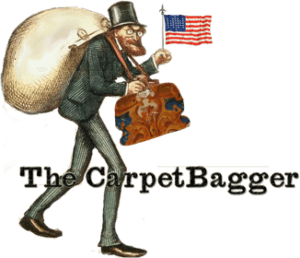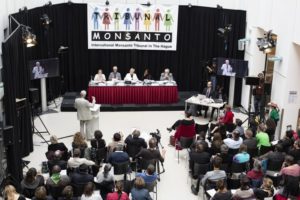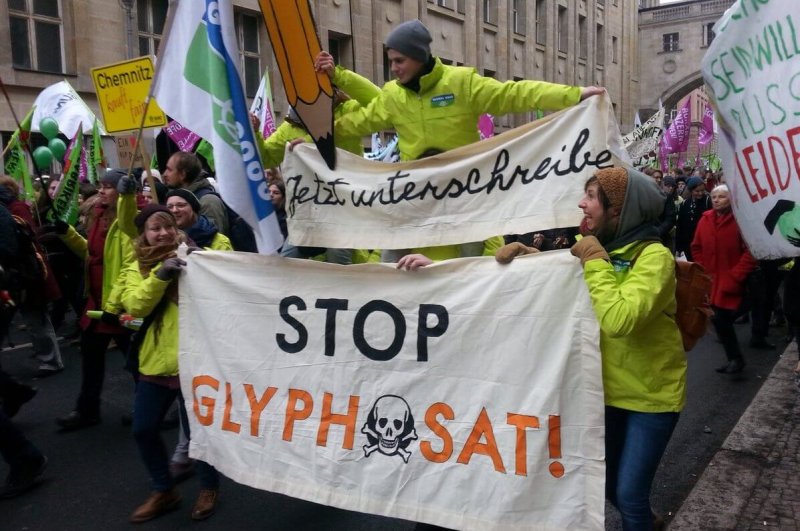The life of an environmental activist in Washington is pretty tough. The US government does not give her millions of dollars to hold secret meetings. The risk-based regulatory process means she has to produce evidence to get anyone to listen to her. The legislators are actually elected and accountable to real people (not the PR-concocted “Us”). The public is concerned about jobs and growth, not idealism and manufactured fears. Precaution is a normal human reaction and not an artificial policy tool for opportunists without integrity. Add a pro-business narcissist in the White House and I can understand why American activists are angry all the time.
Fortunately, there are greener pastures for American activists in Brussels.
In Brussels, these activists can take their emotion-laden campaigns into a hazard-based regulatory environment where precaution is the policy impulse and fear-mongerers are welcome at the table. So if you were an American flush with an anti-Trump fundraising war-chest, where would you get a bigger bang for your buck? Indeed in the vegan restaurants and Starbucks cafés mushrooming up all around Place Schuman, the Risk-Monger is hearing more and more of that friendly American twang camouflaging their angry activist deception – the carpetbaggers have arrived to set the local innocent regulators right.
Their logic is simple. If you are a paid-up lobbyist for the organic food industry running a Washington-based NGO, you are fighting a Congress full of representatives and senators from farming states (California and New York will only deliver four votes on the Senate floor), you have no benchmark for success and can only measure progress by baby steps. Without any scientific evidence or grassroots support, nobody outside of label-happy California takes your fear campaigns seriously. But if you can ban your target substances (glyphosate and certain neonicotinoids are the flavours of the month) in the influence rich but lawyer-weak left-leaning European Commission, you then take that feather in your cap back to DC and try to build regulatory momentum.
So it is off to Brussels to run an American campaign.
 This is a new generation of carpetbaggers. A carpetbagger is an opportunist who will move into an area where people or institutions are not sophisticated and take advantage of the weaknesses to amass power and influence. The term came into use following the American Civil War (during the Reconstruction) when political figures from the North came down and exploited the chaos and power vacuum in the South (often for personal gain). They had no roots in the area and no interest in seeing the local situation improve.
This is a new generation of carpetbaggers. A carpetbagger is an opportunist who will move into an area where people or institutions are not sophisticated and take advantage of the weaknesses to amass power and influence. The term came into use following the American Civil War (during the Reconstruction) when political figures from the North came down and exploited the chaos and power vacuum in the South (often for personal gain). They had no roots in the area and no interest in seeing the local situation improve.
Glyphosate: How Andriukaitis is becoming an American patsy
Let’s stop for a minute and think. What is the big deal about glyphosate for Europeans? Glyphosate’s toxicity is below that of biscuits and coffee. Any traces in food are in the part per billion range (insignificant). It breaks down naturally in the environment in a matter of days. Outside of one badly tainted study (IARC), all other scientific institutions have given it a clean bill of health. It has been off-patent since 2000 (so it is cheap and after more than 40 years, the herbicide of the century still delivers just what the farmers need). Glyphosate enables farmers to effectively enrich soil by terminating complex cover crops while practicing no-till farming (Google the term “conservation agriculture”). Only an idiot would consider taking such a valuable substance out of the European agricultural toolbox.
There is only one logical reason why anyone would want to ban glyphosate. It is used in combination with herbicide-resistant GMO seed varieties. So if NGOs want to ban GMOs, the first step is to ban glyphosate. But most European farmers don’t grow GMOs. Glyphosate is an American activist campaign run from Brussels.
There is only one logical reason why anyone would kick up over-tilled dust on glyphosate. It is used in combination with glyphosate-resistant GMO seed varieties. So if NGOs want to ban GMOs, the first step is to ban glyphosate (Ssshhhh! Don’t tell those Einsteins about dicamba!) But most European farmers don’t grow GMOs. In other words, the entire glyphosate mess that has handcuffed the European Union for the last two years, one that has single-handedly crippled the EU comitology process (leading to an unnecessary and dangerously myopic reform proposal) has been caused by American NGOs bringing their anti-GMO campaign across the Atlantic. Glyphosate is an American activist campaign run from Brussels. Once hopelessly hazard-based Brussels bans it, immense pressure will be put on American regulators.
The longer EU Commissioner for Health, Vytenis Andriukaitis fails to show regulatory leadership on glyphosate, the more he will look like an American patsy. It is extremely embarrassing to see how stupid Europeans have been made out to be, having been played so easily by a band of American hippies and naturopaths.
America go Rome!
The chief carpetbagger on glyphosate is the American statistician, Christopher Portier. He left his career as a US regulatory scientist to join the anti-pesticide NGO, Environmental Defense Fund, and run the campaign of his life from Europe. And so his journey began (see links support):
- Portier’s NGO non-transparently covered his costs to take an internship at IARC where Portier, as a (not so external) chair, convinced the IARC monograph committee to do a study on glyphosate.
- A year later, despite not being a toxicologist, Portier managed to be the only external technical adviser to the IARC Glyphosate Working Group (IARC “accidentally” forgot to declare Portier’s NGO affiliation).
- Once the IARC guilty verdict was safely delivered, Portier, now based in Switzerland (and a proud member of the Italian Ramazzini Institute – a kind of Rotary Club for activist scientists) started his heroic European campaign.
- Portier was seen advising governments and doing media events from the UK to France to Germany. He wrote letters to the European Commission signed by all of his friends (his “Facebook science” approach outraged the head of EFSA, Bernhard Url). Portier even had a private meeting with European Commissioner for Health Andriukaitis.
- Another NGO, HEAL, used EU taxpayer money to march Portier up to Helsinki to testify in front of the European Chemicals Agency’s hearing on glyphosate (supposedly to teach regulatory science to those “stupid Europeans”).
But like any carpetbagger worth his salt, Portier kept his eye on the prize. When the US EPA CARC committee published their report that concluded that glyphosate was not carcinogenic, Portier got the agency to quickly “unpublish” the report. His argument was that it might influence the pending EU decision to reject the glyphosate renewal (and undo all of his hard work).
The lawyerisation of the EU policy process
The American lobbying arena is run by lawyers (OK, in such a litigious society, everything is run by lawyers). NGOs like the Environmental Defense Fund or the Environmental Working Group are pseudo law firms who have a clear strategy – gum up the policy process by tying regulators and companies up in the courts. The Tobacconisation strategy has been extended to companies like Monsanto and ExxonMobil – the idea is simple: Keep corporations in the courts for decades until they just leave the business, use class action suits to cement public outrage and find district attorneys who embrace populist support (in exchange for turning over corporate email servers).
The Brussels lobby arena had been designed around stakeholder dialogue, compromise and process (rather than trying to amend law codes or set precedents). The carpetbaggers have brought this lawyerisation strategy into a Brussels unprepared for such games. The American NGO SumOfUs is regularly asking for donations for their lawyers in Europe (most recently in cases concerning neonicotinoids and glyphosate). During the secret NGO strategy meeting in Berlin, Friends of the Earth had boasted how effective their lawyers had been in the United States in interfering with anti-trust hearings on the Bayer-Monsanto merger. They presented a list of high-level law firms in order to use the European courts as a means for activist grandstanding.
Then there are the home-grown European wannabes. ClientEarth is a new activist NGO designed around the American litigious passion for court-driven campaigns. In their zeal they have threatened to take the Commission to court over acrylamide… yes, burnt toast! Opportunists like Alberto Alemanno, who has spent enough time in the US to learn a thing or two, have spotted the rich pickings of providing legal services to NGOs (which somehow makes him think he smells more fragrant than the “bad” corporate lobbyist). Without a historical legal tradition in European policy development (the lawyers used to come in only at the implementation phase), Americans come to Europe thinking they can create a semblance of judicial theatre – take for example the kangaroo court known as the Monsanto Tribunal.
Daddy Warbucks and the American guru
 The Monsanto Tribunal showed first-hand how American activists with deep pockets were willing to spend whatever it takes to put on a big show in Europe. Costing well over half a million euros, this show-trial based in The Hague was largely funded by American organic food lobby gurus like Joseph Mercola and Ronnie Cummins. The Risk-Monger was shocked to witness the large number of American gurus who marched into The Netherlands with their entourages, personal film-makers and sycophants to show the ignorant locals how things are done.
The Monsanto Tribunal showed first-hand how American activists with deep pockets were willing to spend whatever it takes to put on a big show in Europe. Costing well over half a million euros, this show-trial based in The Hague was largely funded by American organic food lobby gurus like Joseph Mercola and Ronnie Cummins. The Risk-Monger was shocked to witness the large number of American gurus who marched into The Netherlands with their entourages, personal film-makers and sycophants to show the ignorant locals how things are done.
The US organic food lobby and the supplements industry have spawned a new generation of gurus with deep pockets and huge egos. Wayne Parent sacrificed his daughter’s youth to increase sales for his Nutrition House health food empire. David Avocado Wolfe, Vani Hari and Mike Adams have built their networks on public fear of cancer from the food industry. Like the others, Vandana Shiva turns this fear into a populist hatred of industry and international trade. The US Right to Know is a blueprint for how the organic food lobby can openly fund scaremongers to expand their markets (a wet dream for amateur groups like Corporate Europe Observatory!).
Food and Water Watch set up EU operations to extend their anti-fracking campaign in friendlier locations. Gurus and social media upstarts like SumOfUs and Avaaz are increasingly pouring serious money into Europe, now supplanting the established NGOs and bypassing the European dialogue process.
European capitals, especially in the smaller countries, are not ready for the assault on reasonableness that these scaremongering carpetbaggers are capable of.
Carpet shampoo?
So how do we deal with the carpetbaggers who have found Brussels as an easy campaign launchpad for US policy issues?
I would love to get European lawmakers to wake up to the stupidity of their hazard-based regulatory approach. I would applaud the first EU Commissioner to actually stand up for the science presented to him or her instead of hiding behind the cowardice of the precautionary poison pill. I sometimes lay awake at night dreaming that there would someday be scrutiny on how the activist NGOs romp freely around Brussels, with no accountability and no transparency demanded from them.
But this so ain’t gonna happen.
So I suppose we will have to also start playing dirty. American industry lobbyists will have to take Brussels seriously.
Somebody get me a lawyer!
A version of this article appeared on the Risk-Monger blog as “Carpetbaggers: American NGO Activists in Brussels” and has been republished here with permission from the author.
David Zaruk is a Belgian-based environmental health risk policy analyst specializing in the role of science in policy and societal issues. He blogs under the pseudonym: The Risk-Monger. Follow him on Twitter at @zaruk
For more background on the Genetic Literacy Project, read GLP on Wikipedia































